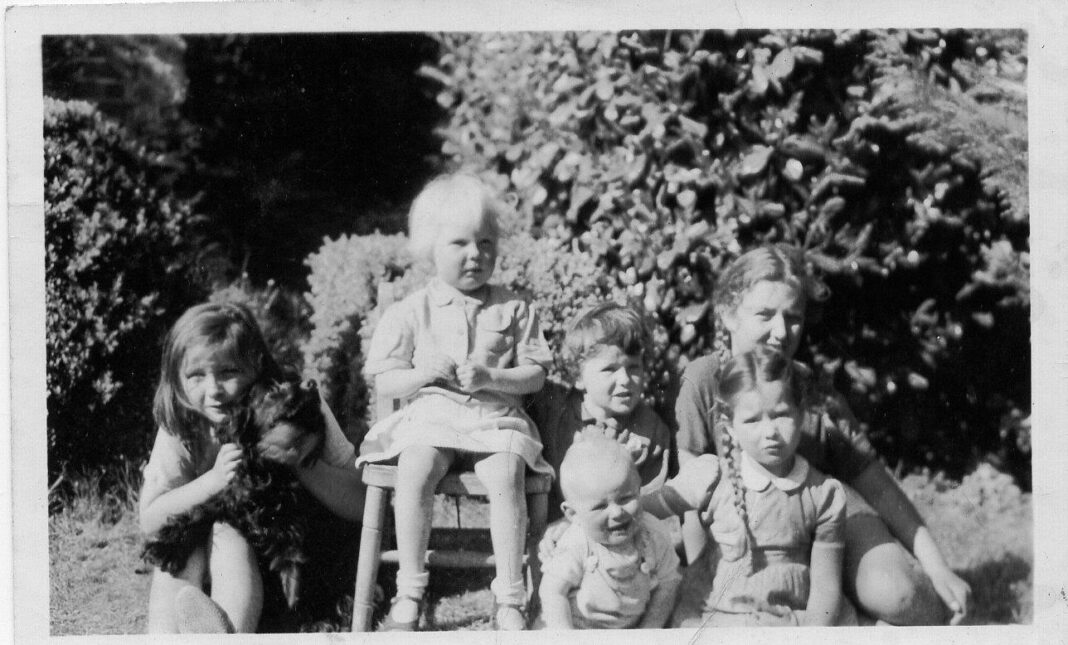With the 80th anniversary of VE Day being celebrated next month, Rye News Press Club students at Rye College have been researching their family histories. Reporter Audrey asked her grandmother Elizabeth Højlund about growing up during WW2.
I was born in 1938 just before the war started and seven when it ended. I lived with my parents in London until 1943 when we moved to a house in Cripps Corner near Rye.
Unfortunately, we didn’t escape from the war as the doodle bugs (German flying bombs) which were sent to London every night came across the south of England. Many of them were shot down before actually reaching London so quite often they landed around here. This meant we had to sleep under the stairs in a Morrison Shelter, a kind of cage made of strong metal so we could be protected if a bomb landed on our house. We children thought it was fun. In the daytime we would go looking for any silver stripes lying around, which apparently were part of the air defences.
We didn’t have many sweets as all food was rationed. You had to get your ration card clipped when you bought any food. We didn’t have foreign food like oranges or bananas but families with children got concentrated orange juice which was very thick and sweet. You were supposed to dilute it with water, but we loved to have a few spoonful’s when the grownups weren’t looking!

I was terrified the Germans would come and kill us all, but on Saturday mornings when we took our pocket money to the little village shop, we would meet young German prisoners of war who worked on local farms. They were so polite and friendly that it never occurred to me that they were Germans.
In the summer we came to Winchelsea Beach, which was closed to civilians. As my father owned property there, we were allowed to pass the checkpoint. We would crawl through the rolls of barbed wire to get to the beach. My mother started to run a café to serve the soldiers stationed at the beach with tea, coffee and cakes. My father was too old to join up but he was in the local Dad’s Army or home guards.
Our car was shut away as there was no petrol unless you ran a business. We used our bicycles or the buses. We had no tv and never went to the cinema, but we listened to the wireless and read books.
That is my story.
The Press Club is a joint project between Rye News and Rye College which sees students reporting on life at school and beyond.
Image Credits: Rye News Press Club Audrey , Elizabeth Højlund .



